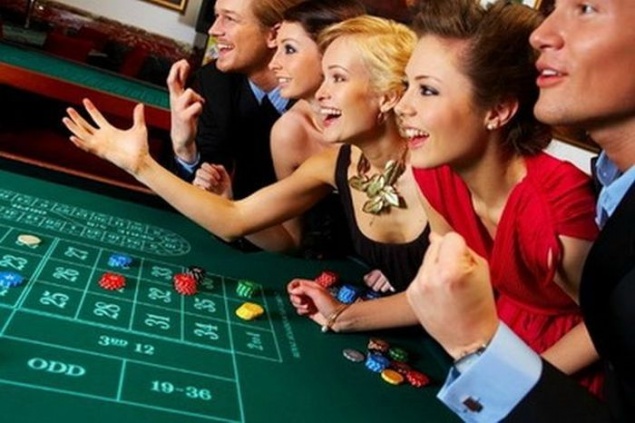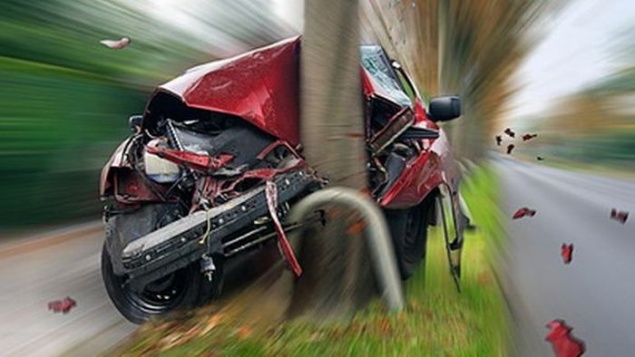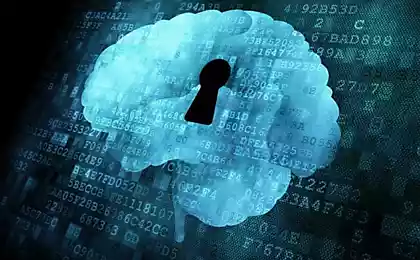1109
Which puts us traps your own mind
Confirmation Bias
We love to agree with people who agree with us.
That's why we primarily attend forums,
where people who share our political views,
and communicate with people, tastes and opinions which are similar to ours.
We are unpleasant individuals, groups of people or sites,
that make us to doubt their own right - a psychologist
Skinner called this phenomenon "cognitive dissonance».
This selectivity and leads to "confirmation bias» -
we often subconsciously perceive only the information,
which "feed" our existing judgments, ignoring or rejecting everything,
that they conflict and threatens to destroy the familiar image of the world for us.
Internet, by the way, only reinforces this trend.

Intra bias
Intra bias - a phenomenon similar to the confirmation bias, which was discussed above.
This is a manifestation of our innate need to "feel part of a team».
Oddly enough, this need is related to the hormone oxytocin - the so-called "love molecule».
This neurotransmitter, on the one hand, helps us to build close ties with each other,
on the other - it produces the opposite effect with respect to those who are left out of our "circle».
He makes us suspicious, inspires fear and even arrogance towards strangers.
Finally, intra-bias leads to
overestimation of abilities and values of our own group and underestimate those,
about whom we are, in fact, have no idea.

Error Player
This tendency to attach great importance to the events already accomplished,
confidence that they can somehow influence our future.
A classic example - the coin toss. If five consecutive falls tails,
the likelihood that the next fall the eagle in our consciousness increases.
In fact, it still remains 50/50.
Roughly the same runs trap "positive expectations" inherent gamers.
They think that after a few losses luck just
I must turn to face them and have the next game they will bring a huge jackpot.
Similarly, work and confusion about the "band of luck».

Post-shopingovogo rationalization
Each of us can remember a single case when, after buying something unnecessary,
unemployed or prohibitively expensive tried to persuade himself that "still it was worth it».
This is the "post-shopingovogo rationalization" - built
in our awareness program with which we can feel
a little better after we make any obvious nonsense.
This phenomenon is also known as "consumer Stockholm Syndrome" - a subconscious desire
in that whatever was to find an excuse irrational buying - especially if it has cost dearly.

Neglect of probability
Very few of us are afraid to get into the car, but most can
admit that experiencing the thrill when coming on board the aircraft.
Flight, no doubt, it is unnatural for a man
condition and is associated with danger.
At the same time, almost everyone knows that the probability die
in a car accident many times greater than in a plane crash.
And yet, our brain refuses to accept this relationship
(statistically likely to be killed while traveling by car - 1/84, by plane - 1/5000).
The same phenomenon causes us to be afraid to die at the hands of terrorists,
and not think about much more real danger -
fall down stairs or accidentally poisoned, for example.

The effect of negativity
Man tends to pay more attention to bad news -
and it does not mean the presence of psychological abnormalities.
Scientists believe that we subconsciously perceive the bad news as more important.
In addition, the bad news make us more confidence - perhaps
because we seem to be too good suspect (or boring).
Writer and psychologist Steven Pinker, for example, argues in his book,
that crime, violence and wars on the planet gradually
is becoming less and less, although most people believe,
that the situation every year is only getting worse - a perfect example,
how the effect of negativity.

Sample survey
Sample survey - is when we suddenly begin to notice everywhere something new for us.
We believe that this "something" from a certain moment we became
pursue, while in reality early
it simply escaped our attention.
Example: You buy a new car, and from that moment start
see the same cars around and everywhere.
The same happens with pregnant women who suddenly
around you start to notice a large number of other pregnant women.
This can be any song or rarely used expression.
Whatever it was, the reason is not that this or that phenomenon was taking place more frequently,
but the fact that you have been paying more attention to it.
From here there is confidence that the similarity of any events
or phenomena "can not be a coincidence" (although in fact may very well).

Effect craze
We love to move along with the crowd, even though we may not be aware of.
When people around us choose a favorite, that part of our brain,
which is responsible for an individual is disabled. We fall into a state of a kind of "groupthink».
For example, the thing that most of your colleagues deemed "cool»,
It has the best chance to become the object of desire for you.
Well, in sports or - if most of your surroundings is a fan of any
command, it is very difficult to resist the craze.

The effect of the transfer
This tendency to assume that other people think the same way as we do.
Since this effect is related a similar effect "false consensus» -
unjustified confidence that surround the default agree with us.
The effect of migration - re-evaluation of our own "normality" and "typicality».
For example, often people belonging to the radical union live with conviction,
that outside of their group a lot of people share their beliefs, although these may not be.

The effect of the moment
We hardly relate "itself today" with "tomorrow", so
often we allow ourselves to do that like today, leaving sweat
for that fleeting pleasure "of those who will later».
During the study, conducted in 1998, for example, 74% of buyers,
choosing food for a week, chose healthy fruits.
And when they were asked to make a choice for the day, the hand 70% of participants in the experiment were drawn to chocolate.

The effect anchor
This effect is also called "the trap of comparison." It relates to our tendency to compare the numbers (to navigate)
losing the attention of their real value. This focus actively use sellers.
A classic example - the goods on sale. We see two prices on the label and appreciate the difference between the two, not the price.
If the "discount" is significant, it makes an impression on us, even if the goods are actually too high and at a discount.
This reception and restaurants are - they include menu prohibitive
expensive meals to the price of others in comparison with them,
It seemed quite reasonable. For this reason, we are making a choice, often choose something in between - not too expensive,
but not the cheap.

We love to agree with people who agree with us.
That's why we primarily attend forums,
where people who share our political views,
and communicate with people, tastes and opinions which are similar to ours.
We are unpleasant individuals, groups of people or sites,
that make us to doubt their own right - a psychologist
Skinner called this phenomenon "cognitive dissonance».
This selectivity and leads to "confirmation bias» -
we often subconsciously perceive only the information,
which "feed" our existing judgments, ignoring or rejecting everything,
that they conflict and threatens to destroy the familiar image of the world for us.
Internet, by the way, only reinforces this trend.

Intra bias
Intra bias - a phenomenon similar to the confirmation bias, which was discussed above.
This is a manifestation of our innate need to "feel part of a team».
Oddly enough, this need is related to the hormone oxytocin - the so-called "love molecule».
This neurotransmitter, on the one hand, helps us to build close ties with each other,
on the other - it produces the opposite effect with respect to those who are left out of our "circle».
He makes us suspicious, inspires fear and even arrogance towards strangers.
Finally, intra-bias leads to
overestimation of abilities and values of our own group and underestimate those,
about whom we are, in fact, have no idea.

Error Player
This tendency to attach great importance to the events already accomplished,
confidence that they can somehow influence our future.
A classic example - the coin toss. If five consecutive falls tails,
the likelihood that the next fall the eagle in our consciousness increases.
In fact, it still remains 50/50.
Roughly the same runs trap "positive expectations" inherent gamers.
They think that after a few losses luck just
I must turn to face them and have the next game they will bring a huge jackpot.
Similarly, work and confusion about the "band of luck».

Post-shopingovogo rationalization
Each of us can remember a single case when, after buying something unnecessary,
unemployed or prohibitively expensive tried to persuade himself that "still it was worth it».
This is the "post-shopingovogo rationalization" - built
in our awareness program with which we can feel
a little better after we make any obvious nonsense.
This phenomenon is also known as "consumer Stockholm Syndrome" - a subconscious desire
in that whatever was to find an excuse irrational buying - especially if it has cost dearly.

Neglect of probability
Very few of us are afraid to get into the car, but most can
admit that experiencing the thrill when coming on board the aircraft.
Flight, no doubt, it is unnatural for a man
condition and is associated with danger.
At the same time, almost everyone knows that the probability die
in a car accident many times greater than in a plane crash.
And yet, our brain refuses to accept this relationship
(statistically likely to be killed while traveling by car - 1/84, by plane - 1/5000).
The same phenomenon causes us to be afraid to die at the hands of terrorists,
and not think about much more real danger -
fall down stairs or accidentally poisoned, for example.

The effect of negativity
Man tends to pay more attention to bad news -
and it does not mean the presence of psychological abnormalities.
Scientists believe that we subconsciously perceive the bad news as more important.
In addition, the bad news make us more confidence - perhaps
because we seem to be too good suspect (or boring).
Writer and psychologist Steven Pinker, for example, argues in his book,
that crime, violence and wars on the planet gradually
is becoming less and less, although most people believe,
that the situation every year is only getting worse - a perfect example,
how the effect of negativity.

Sample survey
Sample survey - is when we suddenly begin to notice everywhere something new for us.
We believe that this "something" from a certain moment we became
pursue, while in reality early
it simply escaped our attention.
Example: You buy a new car, and from that moment start
see the same cars around and everywhere.
The same happens with pregnant women who suddenly
around you start to notice a large number of other pregnant women.
This can be any song or rarely used expression.
Whatever it was, the reason is not that this or that phenomenon was taking place more frequently,
but the fact that you have been paying more attention to it.
From here there is confidence that the similarity of any events
or phenomena "can not be a coincidence" (although in fact may very well).

Effect craze
We love to move along with the crowd, even though we may not be aware of.
When people around us choose a favorite, that part of our brain,
which is responsible for an individual is disabled. We fall into a state of a kind of "groupthink».
For example, the thing that most of your colleagues deemed "cool»,
It has the best chance to become the object of desire for you.
Well, in sports or - if most of your surroundings is a fan of any
command, it is very difficult to resist the craze.

The effect of the transfer
This tendency to assume that other people think the same way as we do.
Since this effect is related a similar effect "false consensus» -
unjustified confidence that surround the default agree with us.
The effect of migration - re-evaluation of our own "normality" and "typicality».
For example, often people belonging to the radical union live with conviction,
that outside of their group a lot of people share their beliefs, although these may not be.

The effect of the moment
We hardly relate "itself today" with "tomorrow", so
often we allow ourselves to do that like today, leaving sweat
for that fleeting pleasure "of those who will later».
During the study, conducted in 1998, for example, 74% of buyers,
choosing food for a week, chose healthy fruits.
And when they were asked to make a choice for the day, the hand 70% of participants in the experiment were drawn to chocolate.

The effect anchor
This effect is also called "the trap of comparison." It relates to our tendency to compare the numbers (to navigate)
losing the attention of their real value. This focus actively use sellers.
A classic example - the goods on sale. We see two prices on the label and appreciate the difference between the two, not the price.
If the "discount" is significant, it makes an impression on us, even if the goods are actually too high and at a discount.
This reception and restaurants are - they include menu prohibitive
expensive meals to the price of others in comparison with them,
It seemed quite reasonable. For this reason, we are making a choice, often choose something in between - not too expensive,
but not the cheap.

























